3 min read
Honchō Scoops Up Two UK Search Awards!
It’s official, we've added not one, but two shiny trophies to our awards cabinet! We’re over the moon to share that we’ve triumphed at the UK Search...
Today on the web, personalisation dominates every entertainment platform. Algorithms that understand your interests are what gives online content so much leverage over traditional entertainment such as TV and radio. This trend has grown so far that now Google is applying their approach to personalised search on the Google search engine.
Personalisation allows the service to find content that is meaningful to you, without you ever even knowing you wanted to view that before it got recommended. Flicking through TV channels to find a new show you like is something that is so broad when you look at how detailed and accurate personalised content is.
The power of being able to find anything you want when you want is a huge appeal to viewing online content. However, being able to find new content without actively looking for something takes online discovery to the next level.
Paid advertising online is far more lucrative to businesses now with the ability of ‘targeted ads’. Machine learning that understands your online habits and the demographic you fall in allows businesses to target very specific relevant types of audiences. Their marketing budget is spent on users that are more likely to engage and buy. Do you know the two different types of paid ad bidding? Make sure to check out the difference between CPC and CPM bidding here.
Ads on TV are merely ads that show to everyone who is watching. The closest an advertiser can get to relevant targeting is by targeting ads based on the type of TV show/content. So typically, during the ad break of a football match, male-orientated ads show and typically gambling ads show. This is a very broad way of targeting and essentially painting everyone who watches football with the same brush. That’s all they can play with for TV.
Online Ads offer far more ability to target huge varieties of users and more specific users. With various Google tools, types of users can be studied and advertisers can take much more calculated and strategic decisions.
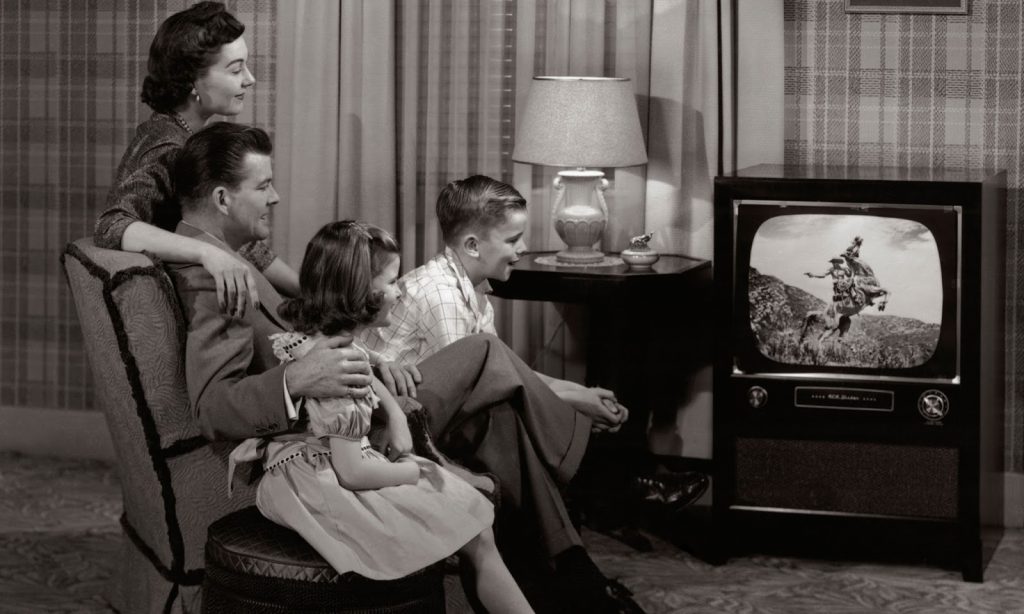
Still to this day, the YouTube algorithm is fantastic at recognising the videos you like and suggesting relevant music/videos in relation to what you’re listening/watching right now or what you have watched. I spent hours digging deep into new types of music because of how great the algorithm is.
In fact, it was so ahead of its time, I believe that a huge reason for YouTube’s success in all fields of entertainment was because of how smart the algorithm was. 10 years ago there really wasn’t any other platform that not only gave you the freedom to find any content you was looking for with its search engine, the algorithm would send you down a deep rabbit hole into interesting topics and videos you never even knew you would like or want to watch. I spent countless late nights watching random documentaries without ever searching for one.
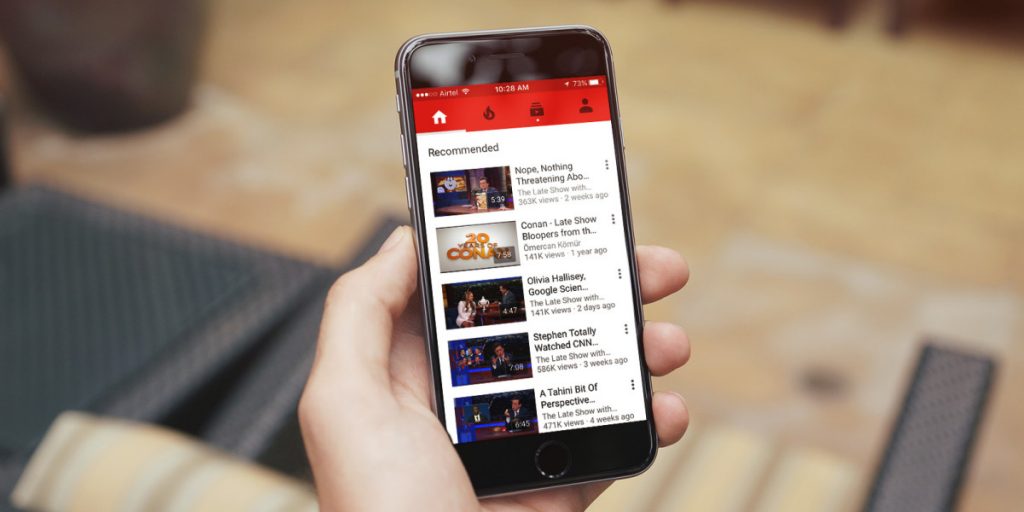
With a never-ending pool of content on YouTube, having the ability to search for absolutely anything, whenever you want is what brings you to YouTube. Having a constant stream of the next content to watch, is what prevents you from wanting to leave the site.
By creating a constant stream of related and recommended videos, YouTube created opportunities for users to spend far greater time there than planned. Not only that but by opening new doors of discovery for users, it could lead to users finding new channels to follow thus making them further enticed to return to the platform the next day.
You could search for one video, and then there would be a list of related videos or recommended videos based on either the topic of the video or your interests. One quick 10-minute video turns into a 2 hour YouTube session late at night.
Before you know it, you may start subscribing to channels and returning to the site regularly to enjoy new content from followed channels
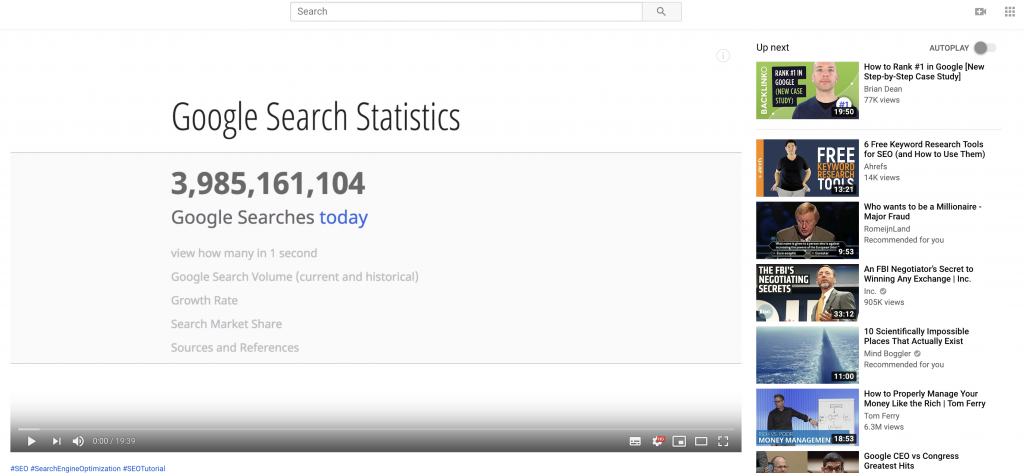
You just couldn’t do this anywhere else. With TV you were stuck with what was scheduled on TV. When the likes of BBC iPlayer launched, it was primitive in terms of how much personalisation YouTube had. Netflix wasn’t a thing, and it’s also only been effective at recommending things you might enjoy in the last few years. Social media didn’t have videos with algorithms like YouTube.
Now the likes of Spotify, Instagram and Facebook have algorithms and the technology on other platforms has caught up with YouTube. But YouTube is a testament to how they pioneered the whole landscape of personalised recommendation and the ability to discover new content without even searching.
Personalisation creates a better user experience, but the number one outcome from this trend is keeping you on their platform. Is it really a surprise now (according to Search Engine Land) that thanks to this formula, US residents aged 18-34 watch more videos on mobile devices than they do on any TV broadcast or cable network?
The accuracy of personalised search is making it effortless to find the content you like, and more of a chore to watch content in a traditional non-personalised way like TV.
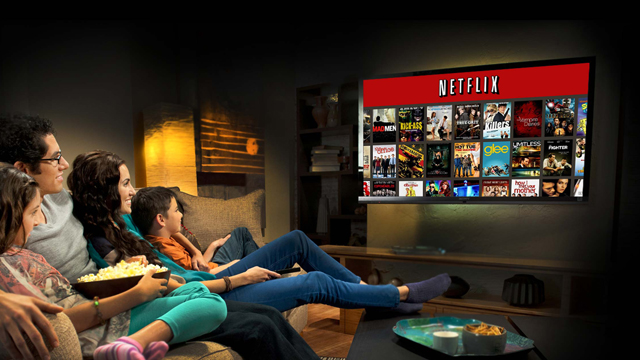
Google is now adopting a personalised approach to your searches. They’ve launched the discover feature, they are allowing you to organise blog content in clusters that act a bit like YouTube playlists. They have activity cards that recommend new searches and content that are related to searches you’ve conducted recently.
They are adopting the best things that YouTube has done so well. YouTube’s algorithms made it a fantastic platform to find endless amounts of content. On the web, there are endless amounts of content, but you don’t always know what you are looking for, and that’s why Google’s emphasis on Discover could have a huge impact on search and could change the way we use Google forever. Currently, these updates are for mobile, but it could be an experiment, and if it is a success, it will surely make its way to desktop too. If Google has really learnt anything from the success of YouTube, it has the real potential to be a game changer.
Rich Cards
This is Google’s new way of organising and displaying informational and editorial content on mobile. If you type in cooking recipes on Google on mobile, the SERPs will be dominated by thumbnails representing blog articles.
There’s a strong emphasis on thumbnails. Effective thumbnails have been preached by experts on YouTube that it is the most effective way to drive users to click on a video. If visual content drives higher engagement, it’s clear why Google is adopting this strategy that has worked for YouTube.

Collections
‘Collections’ is a way to organise the blog content you find on Google. It’s better than simply bookmarking a page you like, it organises it in a tidy interface and also tells Google what you like which helps Google to understand what you like to recommend new content to you. This is a feature that very much reminds me of the ability to create playlists on YouTube. It’s all neatly organised in little thumbnail clusters within their retrospective names.
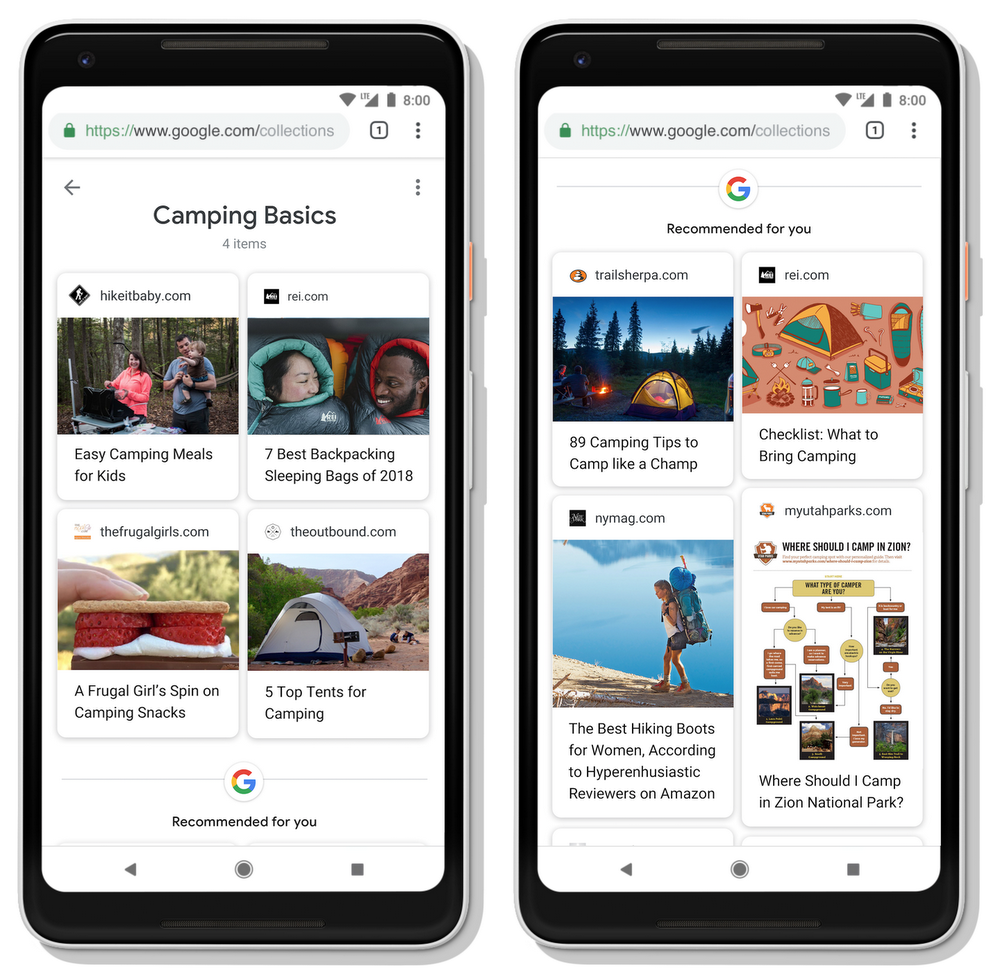
Activity Cards
This is something that has very recently hit mobile devices. Activity Cards is the first major step in making your search experience personalised. This essentially is the equivalent of YouTube’s recommended videos based on your search history and interests. If you were searching for camping guides, the next time you go on, you may see related editorial content to that.
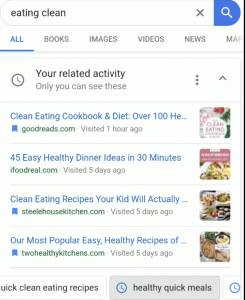
Discover
Another huge personalised search feature is Discover. This suggests content based on your interests. Google’s algorithm will understand what you enjoy searching for and reading. Interested in sport? Discover will suggest sport related news. Searching for cooking recipes for pizzas? Discover will suggest unexplored pizza recipes. This also can display on your home page on mobile. Topics come up and you can click on the topic expanding it. There’s potential for you slide down a rabbit hole for hours just like on YouTube.
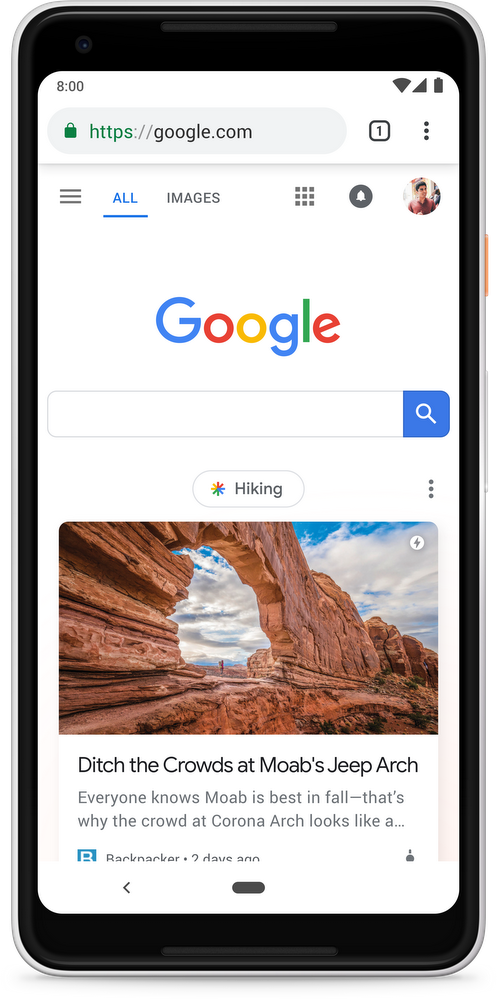
We previously spoke about these changes last year.
The trend of personalisation is at an all-time high, and it won’t be long until personalised search will become a gold standard on Google. The idea of a machine understanding what your online habits are does make surfing the web even more accessible than it was before.
The prospect is slightly creepy for sure, businesses and AI will know a lot about you, but I think it has made watching content much easier on YouTube and now the likes of Spotify and Netflix are too. Google is now getting smart at understanding what content you enjoy making the platform more accessible than ever.
The idea of a completely personalised search requires much more data of your online habits, but the fact is, Google is very well going down this path and looking at their online counterpart YouTube, tells you exactly how it had been done before.
To stay up to date with the latest Google news, follow us on Twitter.

3 min read
It’s official, we've added not one, but two shiny trophies to our awards cabinet! We’re over the moon to share that we’ve triumphed at the UK Search...

5 min read
Understand ecommerce attribution models which attribution models can maximise your marketing efforts and ROI.

3 min read
Explore how social commerce is changing the way we shop online, blending social interactions with digital commerce for a seamless buying experience.